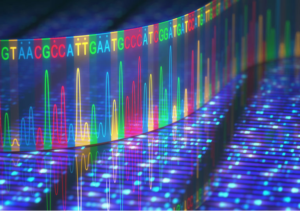Overview
Pediatric neurogenetic disorders are diseases of the brain, spinal cord, nerves and muscles that are caused by changes in genes or chromosomes. Grey matter disorders, epilepsy, white matter disorders, malformations of the brain, neurodevelopmental disorders, movement disorders, genetic syndromes as well as neuromuscular disorders can be genetic in origin.
They may be chromosomal disorders or single gene disorders.
Single Gene Disorders
The chromosome is made of many genes. Genes are the basic functioning unit that gives instructions to the cell. Abnormalities in a single gene are known as single gene disorder. These conditions can be passed from parent to child in different ways. At times people carrying abnormal genes do not show symptoms of the disorder but still pass it to their offspring. The group consists of a spectrum of diseases involving different body systems. Thalassemia, cystic fibrosis, muscular dystrophy are some examples of single gene disorders. Diagnosis is made by various tests depending on the type of disorder suspected. Due to advancement in
Chromosomal Disorders
Chromosomes are the basic building blocks of life. They are a thread like structure made of proteins situated in each cell and carry genetic information. A change in its number or structure may be harmless or at times results in specific disorders. Some are severe and usually fatal resulting in abortions. These defects may be passed from parent to child or may occur spontaneously during formation of the fetus. Downs syndrome is a well-known disorder of this group and results due to an extra chromosome number 21. Chromosomal disorders show specific features and are diagnosed using genetic tests from body fluids like blood and saliva. Many of these conditions do not have specific treatment.

Malformations
Malformations of the nervous system are usually congenital – means present from birth. Anything (drugs, maternal illness, genetic defects) hampering the normal development of the nervous tissue in the fetus can result in malformation. These conditions can be mild and without any symptoms or serious requiring treatment. Malformations can result in seizures, slow development and other difficulties. There is no curative treatment available, but surgery may be advised to maximize the development and function in some cases.
Metabolic Disorders
Metabolism is the complex set of chemical reactions with the help of certain substances like hormones and enzymes that body uses to maintain life. When these chemical processes don’t work properly due to loss or abnormal hormones or enzymes, a metabolic disorder occurs. Metabolic disorders may be acquired or are inherited when due to genetic defects. They may be suspected on basis of clinical features and routine screening tests and confirmed by specific tests. Treatment depends on the type and severity of disorders and may vary from dietary restrictions to liver transplant.
